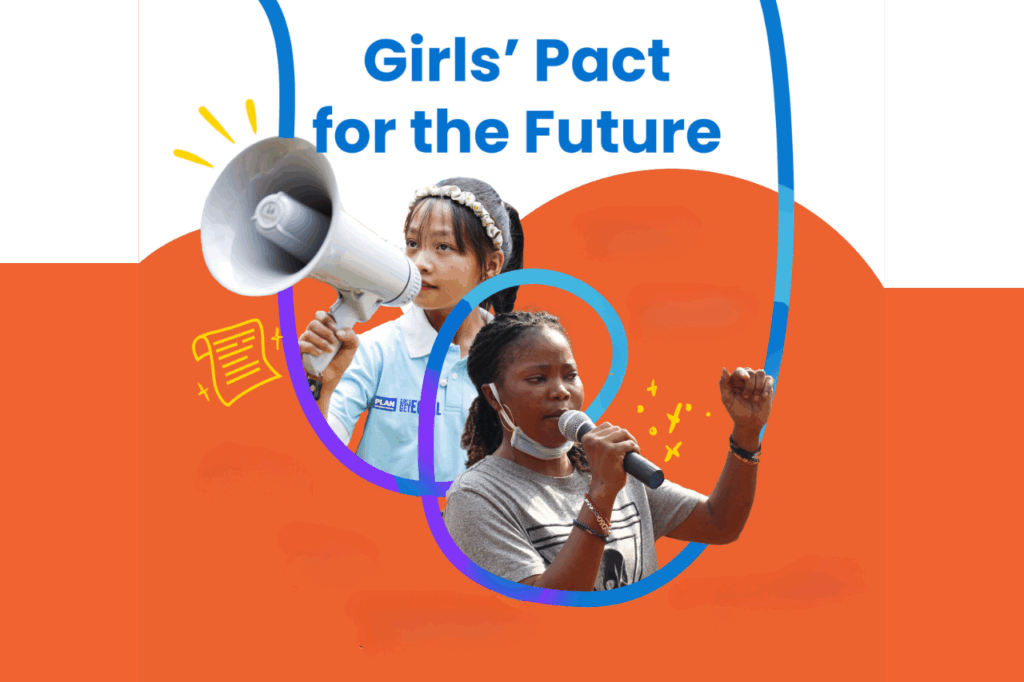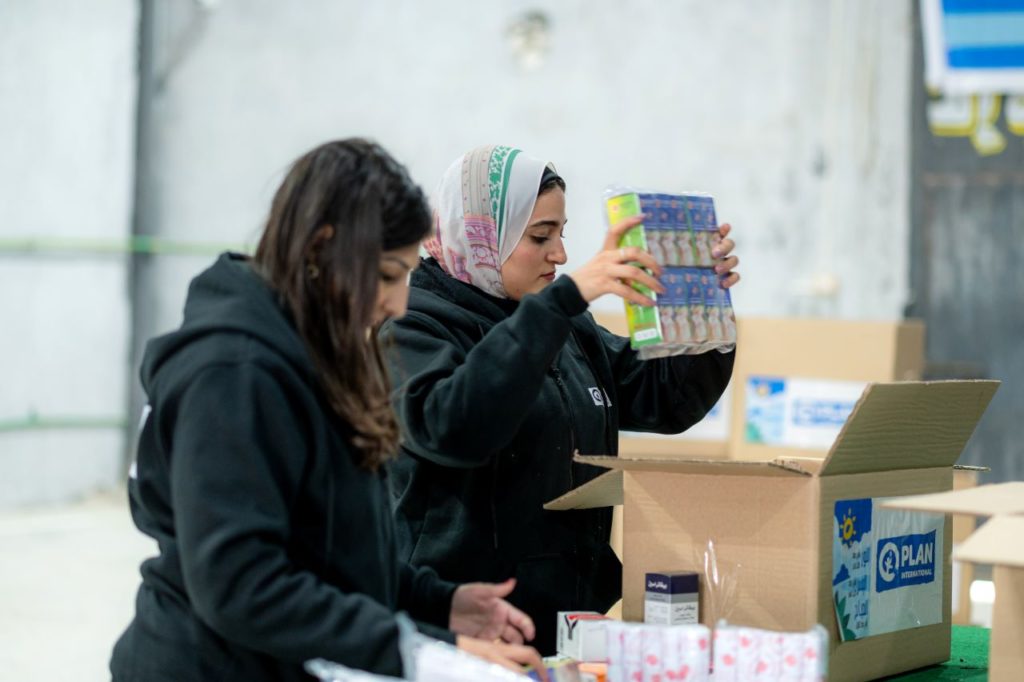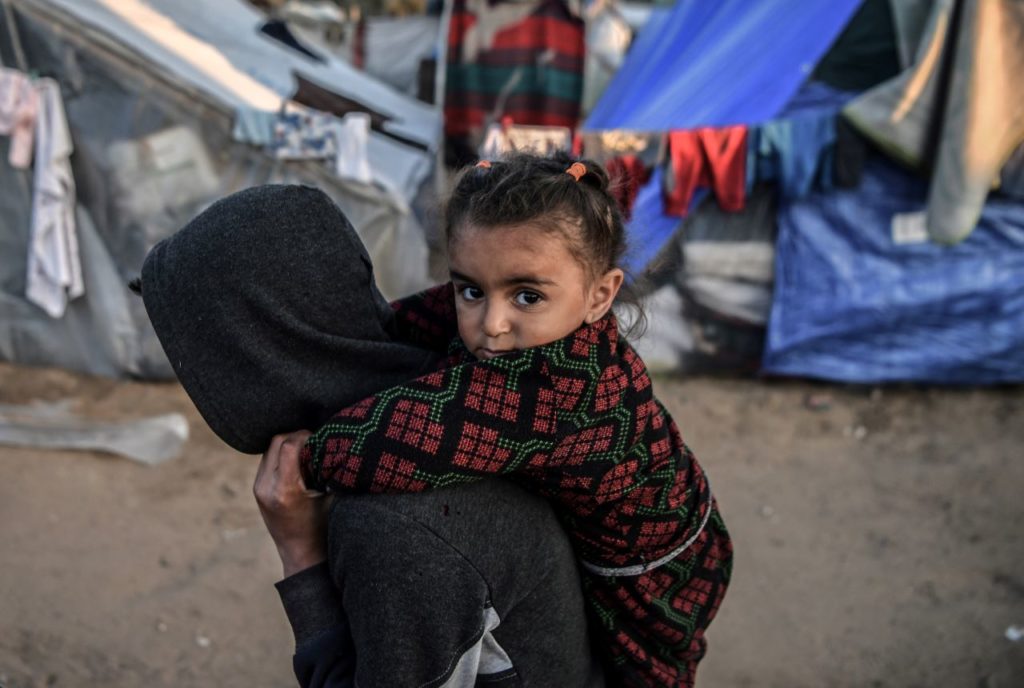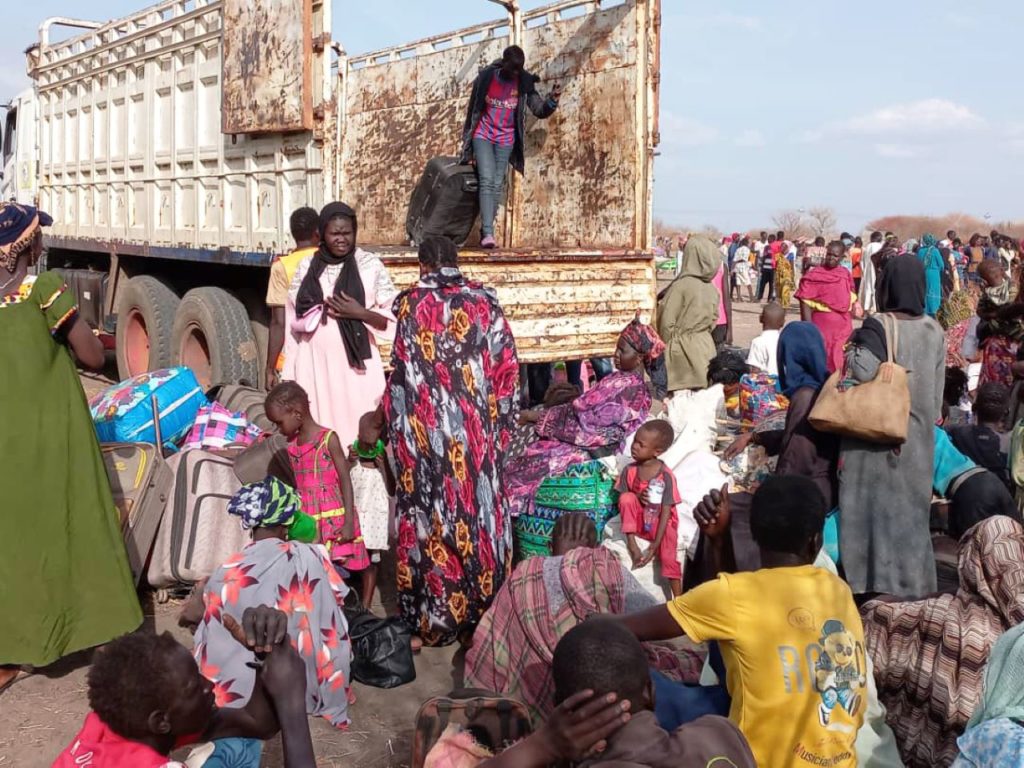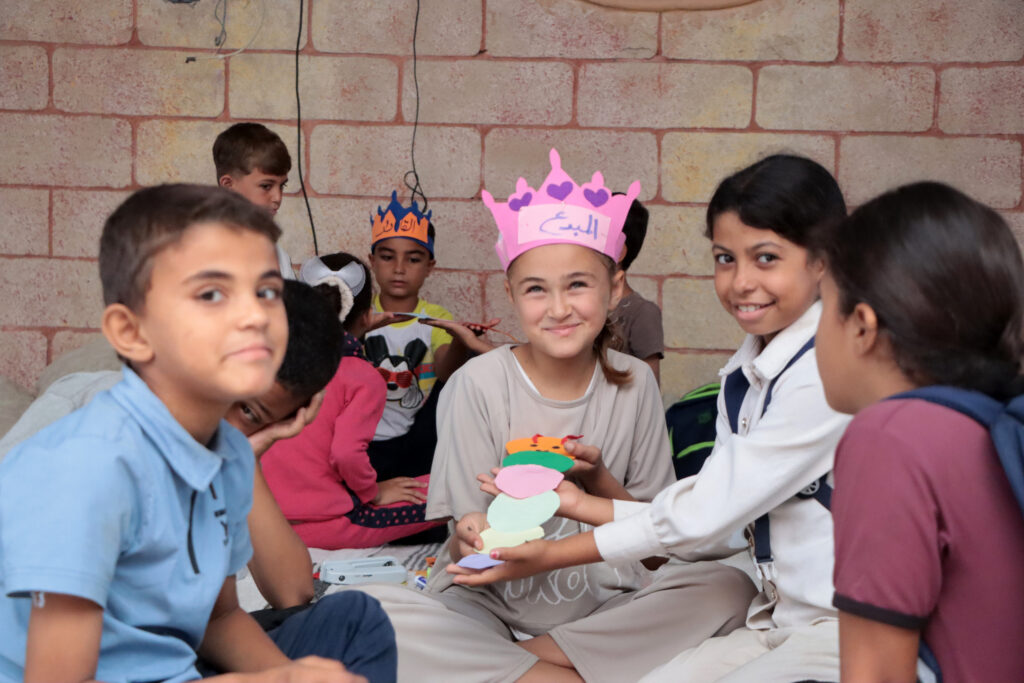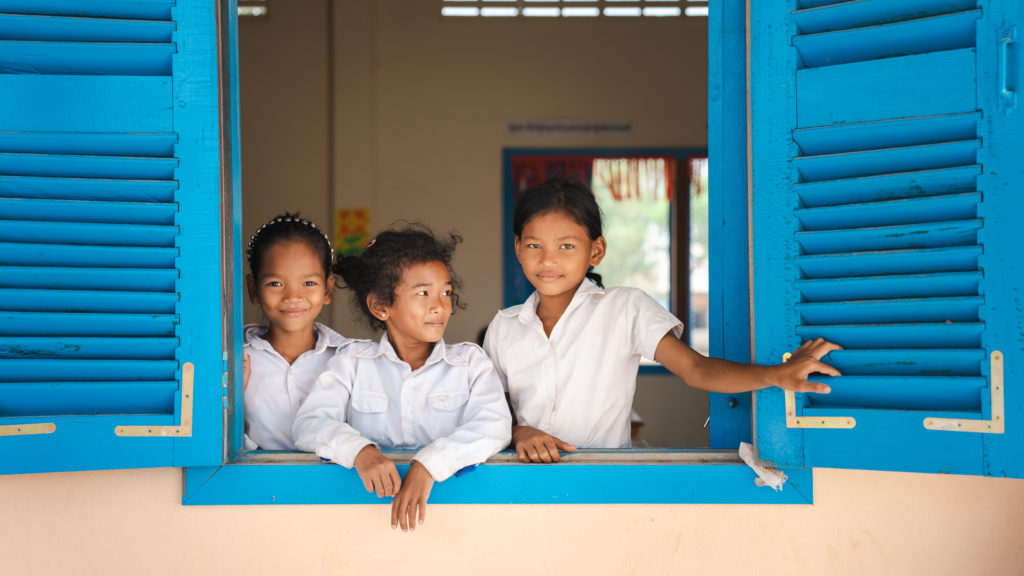In rural parts of Guinea, the poverty and malnutrition rates are alarming, with many people suffering food shortages and hunger. Despite an abundance of natural resources, one in five households in Guinea are food-insecure and nearly a quarter of children are malnourished.
When children go to school hungry, their concentration and ability to learn is affected. Many children – particularly girls – simply stop going to school because their families need them to help in the fields or perform domestic duties.
“In this school, we have children who come from the surrounding villages. Some children travel 10 kilometres each way, every day, and lessons are from 8am to 5pm. Imagine these pupils who are from these villages and have to go back at lunch time to get something to eat, some of them don’t come back and others come back late. Some boys end up dropping out of class to do field work or for the girls, housework,” explains Bintou, who leads the school management committee.
Keeping Children in School with Daily Meals
To help children stay healthy and well-nourished while in school, Plan International in partnership with the German Agency for International Cooperation (GIZ) and the World Food Programme (WFP) have implemented a pilot project at two primary schools in Kissidougou prefecture to construct canteens where food can be stored, prepared and served to schoolchildren each day.

“Plan International, in addition to building our school, has returned with two other partners to announce their plan to modernise our canteen, this time with all the technology needed to cook and preserve food. This goes straight to our hearts,” says Bintou. “As president of the management committee of this school, we guarantee that these achievements once completed will be managed wisely and will benefit our children.”
Plan International is leading the construction of the canteens, while GIZ is in charge of installing solar power systems and buying new stoves and refrigerators to help food stay fresh for longer. The WFP is responsible for the provision of food to the schools and for monitoring and evaluating the success of the project.
The local authorities have also welcomed this initiative, which they say could be a first in Guinea and especially in rural areas. “A school meal is equivalent to a household income for children from rural areas, which can represent considerable savings for families with several children in school,” explains the Prefectural Director of Education for Kissidougou.
Benefits of School Meals for Girls
“The benefits of these school canteens goes far beyond the issue of school meals. They have implications for equity and inclusion in education. Ensuring good results, especially for girls, is related to school performance, enrolment in school and increased attendance. The construction of school canteens can reduce vulnerabilities and boost family incomes.”

While school canteens alone are not enough to ensure education for all children, they have proven to be a powerful factor. Better health and nutrition will enable children to learn and perform better, broadening their educational opportunities. School meals also act as an incentive for families to enroll and keep their children in school, and dissuade parents from marrying their daughters off early, which halts their education and limits their life opportunities.
